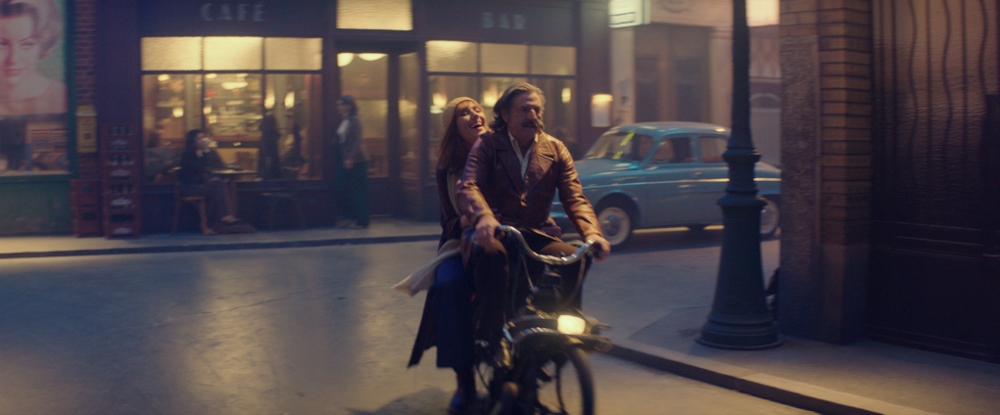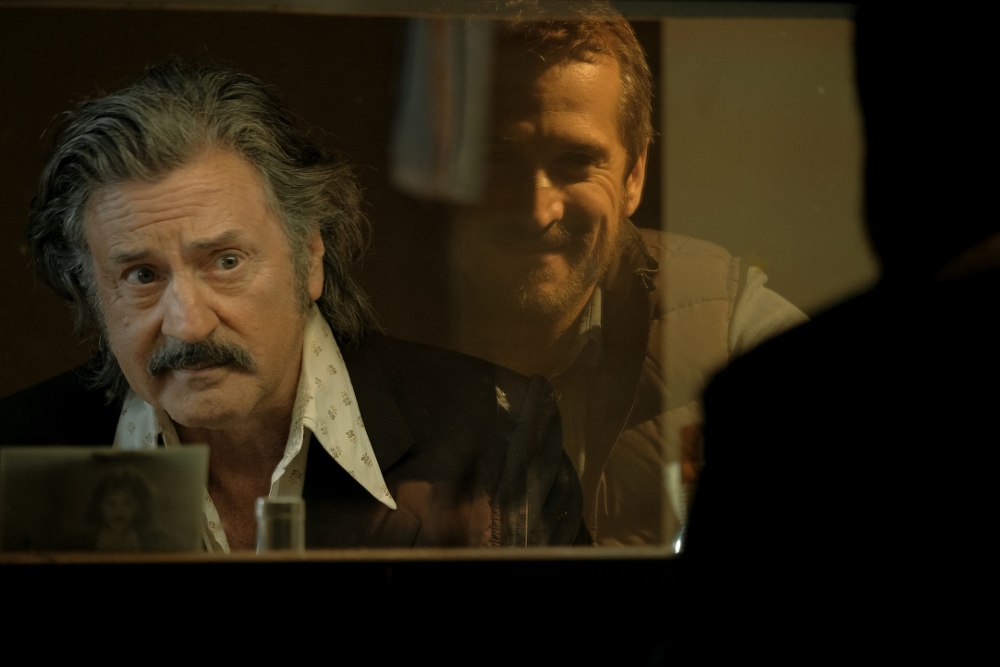
Can love endure? Can early-adopters and luddites live in harmony? Clever, comic and heart-warming, La Belle Époque, directed by Nicolas Bedos, explores themes of love, time, change, and the magic of theatre. Victor (Daniel Auteuil) is a cartoonist whose employment has gone the way of newspapers – it’s gone. He spends his time sketching and longing for the past, while his sharp-tongued wife Marianne (Fanny Ardant) tosses barbed insults his way, mocking him for his reluctance to enter the digital age.
The film opens with a startling scene. An elegant gathering reminiscent of Louis XIV and his era, is punctuated by caustic comments and over-entitled privileged crudity. It feels very real, and rather abhorrent, but it turns out to be a scene from an internet series scripted by Maxime (Michaël Cohen), Victor and Marianne’s son. As family and friends gather around the dinner table, everyone admires Maxime’s film. Everyone except Victor, who thinks it’s kind of racist (it is). As Marianne attacks Victor for his rejection of all that is digital, he sits and quietly sketches her as a Medusa, with snakes coming out of her head. Marianne is fed up with Victor, and Victor seems rather depressed. Bleak as the situation seems, the plot soon takes an unexpected turn.
Maxime’s longtime friend Antoine (Guillame Canet) has started a business called Time Travelers that recreates moments in time down to the finest detail, with carefully coached actors and elaborate sets. It’s an expensive indulgence that allows people to join Marie Antoinette for tea and cakes, or visit any era that strikes their fancy. Antoine is grateful to Victor for encouraging him during a tough time in his teens, and offers him a time travel experience of his choice as a gift. Somewhat surprisingly, Victor chooses to go back to a moment in his own life, rather than explore some distant fantasy. It is perhaps not unexpected that he wants to go back to the 1970s, when “life was simpler” and “people talked to one another, not their phones” but his choice is also revealing: he wishes to go back to May 16, 1974, the night he met Marianne at a café in Lyon called La Belle Époque.
As an artist, Victor is able to supply Antoine’s staff with very accurate visual recollections, and the carefully constructed set looks exactly like the café and surrounding streets he remembers. Except of course, that the brick walls are papered on, and if one looks up, the firmament is equipped with stage lights. Much like the audience in the theatre, the participants know that the experience is not real, and depends on the willing suspension of disbelief. Yet the emotions generated by the experience are very real.

Victor is delighted with the 70s costume he receives, and even more delighted with the actress chosen to portray Marianne. Margot (Doria Tillier) is Antoine’s on and off girlfriend, who has reluctantly agreed to take on the role, even though she’d rather be doing more serious theatre. As Margot plays her part with Victor, earbud in place, Antoine and his staff watch and listen, ready to provide cues. As one might imagine, the underlying affections and tensions make this dynamic a lot more complicated and interesting. In reliving the past, Victor discovers an appetite for the future. Where that desire leads him, develops into a personal journey that is at once comical and touching.
La Belle Époque
Director: Nicolas Bedos; Screenplay: Nicolas Bedos; Editor: Anny Danche, Florent Vassault; Cinematography: Nicolas Bolduc; Cast: Daniel Auteuil, Guillaume Canet, Doria Tillier, Fanny Ardant, Denis Podalydès, Michaël Cohen





